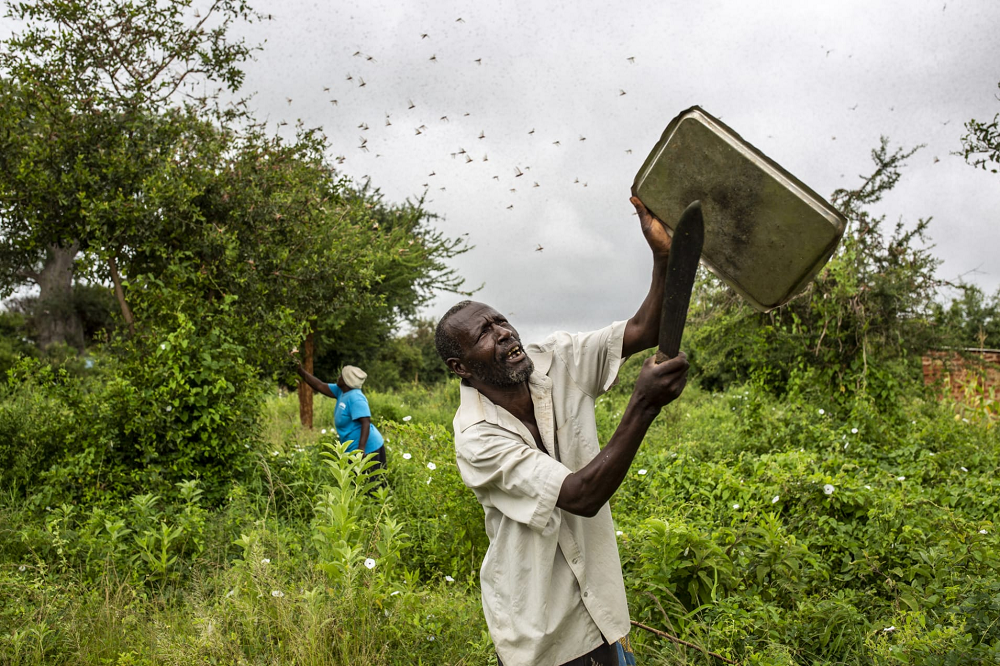East Africa faces dual shock from coronavirus and locust swarms
March 23, 2020 @ 14:00 +03:00
Already being ravaged by the worst infestation of desert locusts in 70 years, East African economies are now staring down the barrel of the coronavirus pandemic. The region was the standout performer for economic growth in the subcontinent prior to the locust outbreak, which threatens the food security and livelihoods of 25 million people and has required emergency funding of its own from the UN and international governments.
Last week the UN Food and Agriculture Organization (FAO) warned that the “unprecedented” situation remains “extremely alarming,” especially in Kenya, Ethiopia and Somalia where widespread breeding is in progress and new swarms are starting to form.
The UN estimates that conducive breeding conditions could see the locusts multiply by 400 times this year, decimating crops in a region which relies on agriculture for roughly one-third of its gross domestic product (GDP) and more than 65% of its employment. Now, a combination of trade and production shocks resulting from the coronavirus outbreak, as well as the economic and medical challenges of trying to combat the pandemic itself, will likely compound these problems.
Kenya, Ethiopia, Somalia, Djibouti and Sudan have all reported cases of the virus and governments have begun to implement stringent restrictions on travel and social gatherings, hoping to nip the virus in the bud before it can overwhelm their fragile healthcare systems. But, even if East African nations are successful in curtailing the spread of the virus, which has increased at an exponential rate in Europe and the U.S., the systemic importance of China to the region’s bilateral trade, and a slump in Chinese demand introducing a terms-of-trade hit to African exporters means further economic difficulties lie ahead.
East Africa faces dual shock from coronavirus and locust swarms, CNBC, Mar 23








